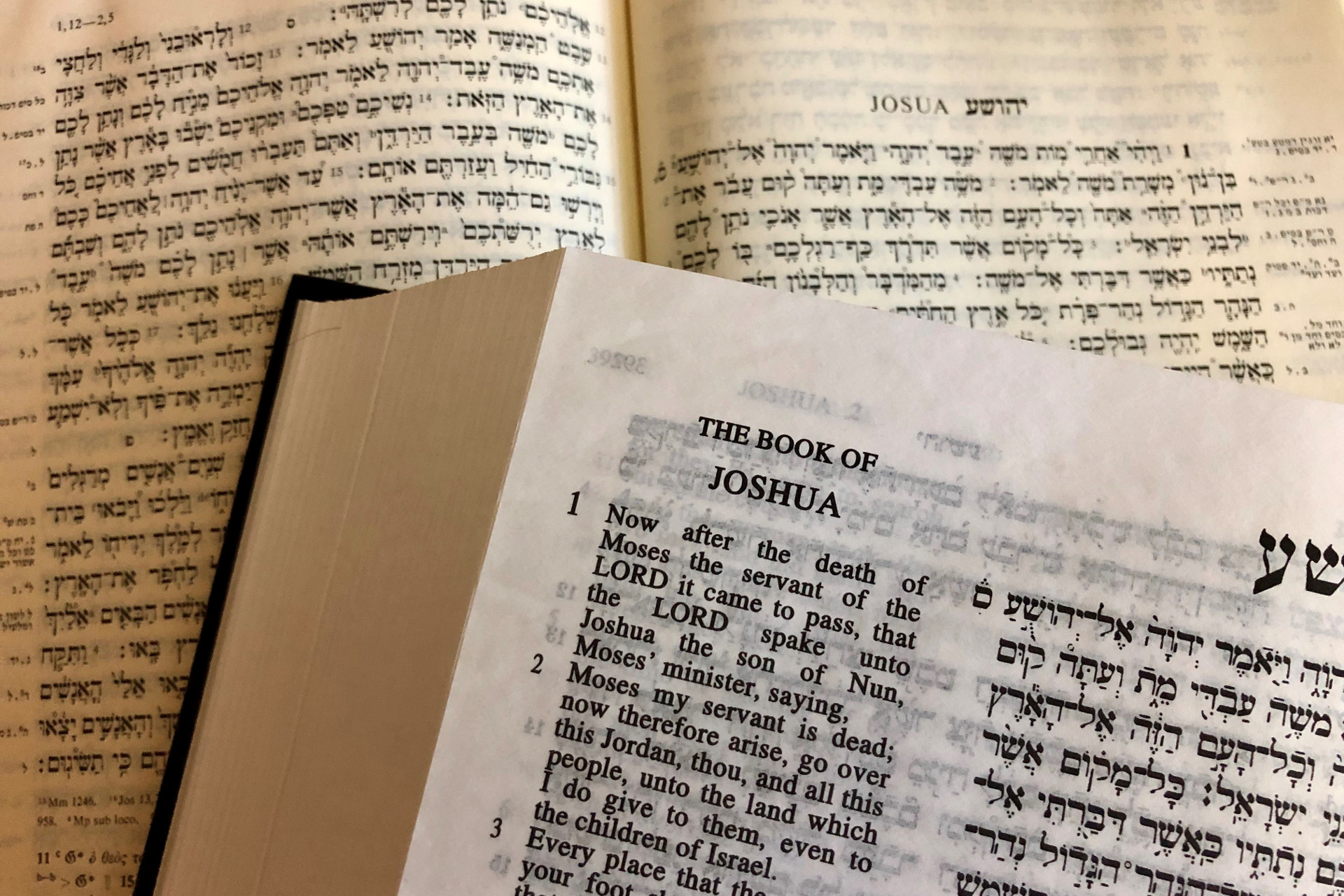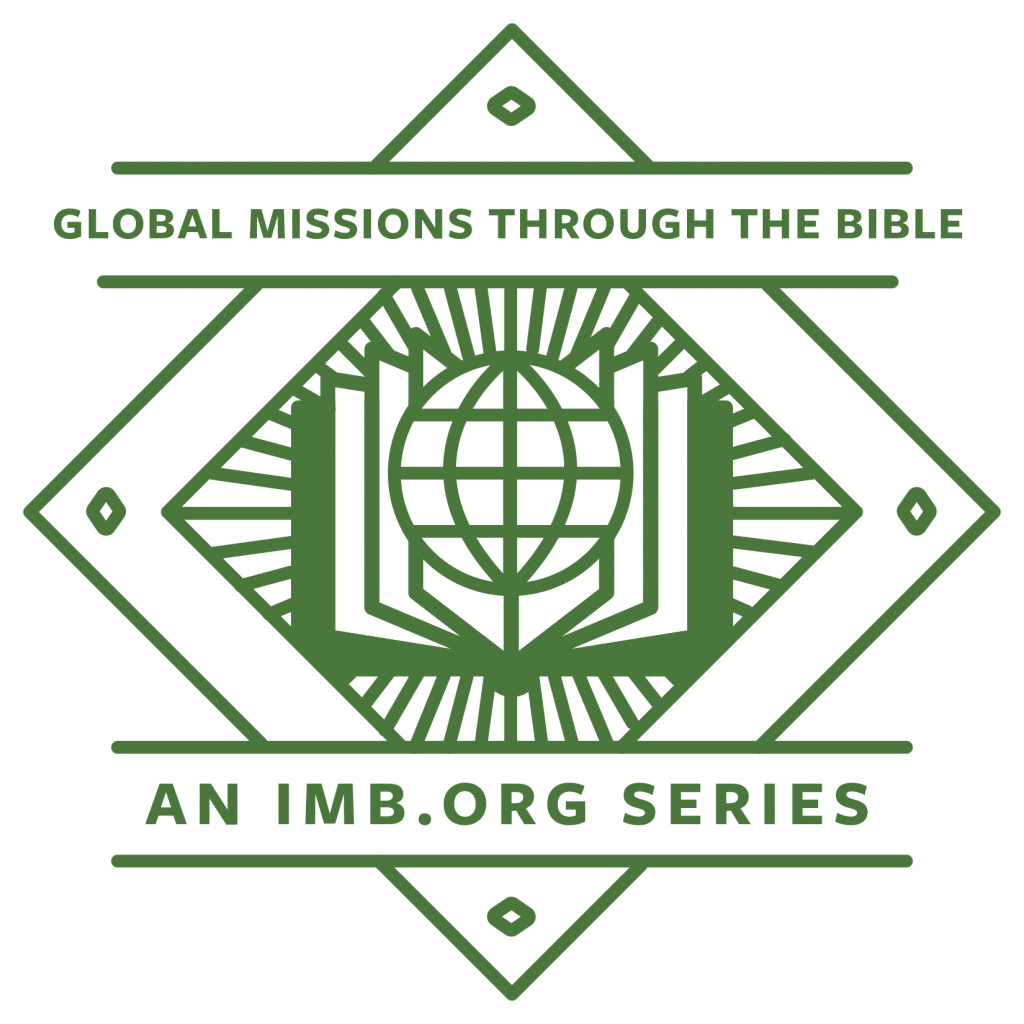Editor’s Note: The history of missions is replete with examples of God using his Word to call his followers to engage in his redemptive work around the world by praying, giving, going, and sending. The aim of this article series (part one here) is to help Bible students, teachers, and readers recognize the theme of global missions throughout Scripture.

 Throughout the book of Joshua, God reveals his heart for the nations. He brought his people into the Promised Land and to a time of “rest” there (Josh 11:23), but that rest did not come without struggle. The people faced conflict from without and sin from within as they took the land and served as God’s means of judgment on the Canaanites.
Throughout the book of Joshua, God reveals his heart for the nations. He brought his people into the Promised Land and to a time of “rest” there (Josh 11:23), but that rest did not come without struggle. The people faced conflict from without and sin from within as they took the land and served as God’s means of judgment on the Canaanites.
God Keeps His Promises
Indeed, the book of Joshua is about a God who keeps his promises to his people and ultimately to the nations. God had given to Abraham the promise of a land and a people to bless the nations (Gen. 12:1–3). He called his people a ‘kingdom of priests’ representing him to the people of the earth (Ex. 19:6), showing them that he alone is God of the nations. No other god could lay claim to the world that was created by and belonged to the one true living God.
The book of Joshua begins with the people of God on the brink of the Promised Land, with only the Jordan River separating them from the land. Four decades prior to the account in Joshua 1, however, the people had been there before. Moses had sent spies to check out the land, but the majority of them were convinced they could not take the land (Num. 13:1–33). The giants in the land were too many for them, they thought, and they rejected God’s promise. The book of Joshua, on the other hand, is about a God who keeps his promises to a people who did not always keep their promises to him.
God Protects His People
As a covenant-keeping God, he eventually gave them the land, led them to conquer it, and granted them rest therein. He drove out “the Canaanites, Hethites, Hivites, Perizzites, Girgashites, Amorites, and Jebusites” (Josh 3:10). He granted them victory in the land, even when he first had to judge them for their own failures (Josh. 7). In fact, Joshua’s last challenge to the people reminded them of his faithfulness and his witness to the nations as he led his people: “He also protected us all along the way we went and among all the peoples whose lands we traveled through” (Josh. 24:17, HCSB).
“Fear need never stop the people of God from engaging the darkness when we know that God is with us.”
God Saves
Their leader was Joshua, whose name means “God is salvation” or “God saves.” His task was to lead his people into the land, knowing that doing so required tackling the enemy in the power of God. The work would not be easy, and strength and courage would be necessary. Thus, God repeatedly promised to be with Joshua as they took the land (Josh. 1:5, 9, 17)—foreshadowing his promise to be with his church “always, to the end of the age” (Matt. 28:20) as they would seek to fulfill the Great Commission. Fear need never stop the people of God from engaging the darkness when we know that God is with us.
Moreover, Joshua and the people found that some people in the land already knew of God’s name when they arrived there. They had heard, according to Rahab, about God’s leading his people across the Red Sea and granting them victory over Amorite kings (Josh. 2:8–11). Apparently, the stories of God’s power had preceded the Hebrews entering the land; so much had the Canaanites heard about the power of God that their “hearts melted” in fear (Josh. 2:11, NKJV).
We do not know how they heard about God, but we can trust that somebody had been talking about him. Perhaps a traveling Canaanite heard the stories and brought them back to Canaan. Or maybe an Israelite carried the stories into the land. How ever it happened, God was preparing the Canaanites to hear his Word long before the spies came into the land. Rahab, an outsider, rejected the false gods of her people and became a follower of the true God. In fact, she was later listed as a heroine of faith (Heb. 11:31).
God’s Wonders Are a Witness to the Nations
The Hebrews’ crossing the Jordan River also became a witness to the nations. God rolled the waters back in a miraculous way, but he did not do so simply for their safe passage; instead, he did it “so that all the peoples of the earth may know that the Lord’s hand is mighty, and so that you may always fear the Lord your God” (Josh. 4:24, HCSB). Surely, the stories spread again: the God of the Hebrews intervened supernaturally, protected his people, and displayed his power among the nations. As a result, his own people were to devote themselves even more fully to him—and they surely talked about him in such a way that the nations knew his name. Indeed, God’s glory displayed in the crossing of the Jordan River caused the leaders of the nations to again “melt” in fear (Josh. 5:1, NKJV).
Thus, God continued to make himself known to the nations through his demonstrations of power. From his rolling back waters to his collapsing walls around cities (Josh. 6) to his defeating giants in the land (Josh. 14), God displayed his power and glory to the people. Sadly, however, most did not turn to him and thus experienced God’s judgment at the hands of his people—and his judgment was just and right. For, he is the God of the nations, even when they do not turn to him.
No Other God but God
The book of Joshua is further a reminder that the false gods of the nations are no match for the God of the Bible. Their lure may be powerful—in fact, even the Hebrews apparently still struggled with following false gods (Josh. 24:14–15)—but only one God is worthy of our allegiance. The gods of the lands cannot stand against the God of creation. Hence, our commitment must be to take the gospel to the nations, point them to the true God, and pray they will say with Joshua, “As for me and my house, we will serve the Lord” (Josh. 24:15, ESV).

